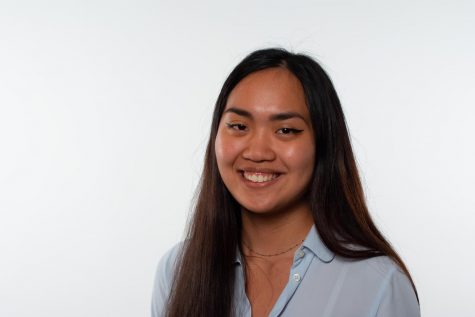Religious affiliation in the United States is at
an all-time low. This declining trend of interest
in religion is reflected in the classroom setting.
A study by Liverpool Hope University
found there has been a 15 percent decrease in
students taking religion classes from 2014 to
now. The same study concluded that religion
classes are the most effective way to increase
the understanding of diverse beliefs that is es-
sential for religious tolerance. As religion fades
out of school curricula, many modern-day reli-
gious conflicts are unknown to most students.
Chapel and religion and ethics classes act
as catalysts for spreading knowledge about
religious ideologies. While both history and
religion classes incorporate the topic of reli-
gion, they take different approaches in terms
of curricula. Social science classes such as AP
Human Geography and world history courses
discuss the evolution of religions throughout
time and human development.
“We cover religion in each unit,” Director of
Forensics and Social Science Teacher Nathan
Johnston said. “[About] 20 percent of the total
curriculum is about the various religions we
encounter through our historical timeline.”
Classes such as Introduction to World Reli-
gions dedicate an entire semester to studies of
select faiths, examining their intricacies.
“In my world religions class, we look at five
major faiths: Islam, Buddhism, Christianity,
Judaism, and Hinduism,” Chaplain Richard
Towers said. “We spend approximately two to
three weeks on each.”
While both sections dedicate a large portion
of time towards discussing religion, teachers
acknowledge that time constraints limit the
detail they can cover.
“Because of what the course demands in
terms of history, we can usually only talk about
past events,” Towers said.
A study by the Pew Research Center in 2019
found 76 percent of the total global population
is currently experiencing some type of restric-
tion on their religion. From acts of violence
against specific groups to government-im-
posed restrictions, religious intolerance has
been running rampant in almost every country
except for the United States.
With more than half of the world experienc-
ing some form of religious conflict, these issues
are undercovered in class curricula.
“We are trying to teach so much in these se-
mester long courses,” Towers said. “Because of
what the course demands in terms of history,
we can usually only talk about the past in such
a short period of time.”
Conflicts such as the Uyghurs in China,
Rohingya in Myanmar and Boko Haram in
Nigeria remain unknown to many students.
Teachers agree that taking a more modern
perspective helps students draw connections
between events.
“I think drawing direct parallels [between
modern day conflicts and historical events]
is particularly helpful to make history come
alive,” Towers said.
Time constraints make it difficult for teach-
ers to spend more time on modern-day issues.
“I think if students want to talk about these
[modern-day religious] conflicts, it would
make a cool semester course,” Social Science
Teacher Andrea Sockwell said.
While these issues are undercovered now,
they can still be incorporated into curricula for
the future.
“[The classroom] can certainly be a pro-
ductive place to discuss religious conflicts,”
Johnston said. “Teachers just need to do it re-
spectfully and in a way that acknowledges the
various viewpoints of people affected by the
conflict. Presuming one side is correct without
thinking through the perspectives of others
can certainly make for some messy situations.”



